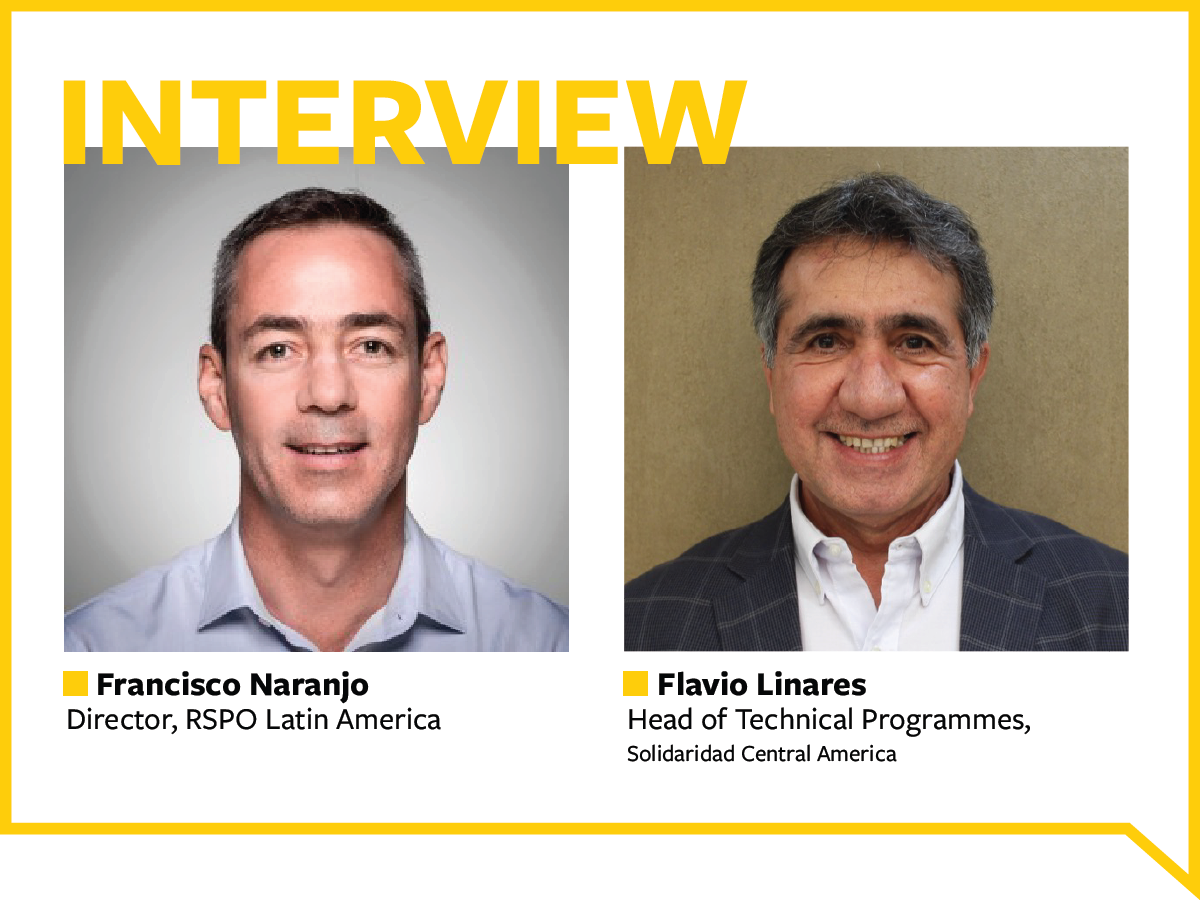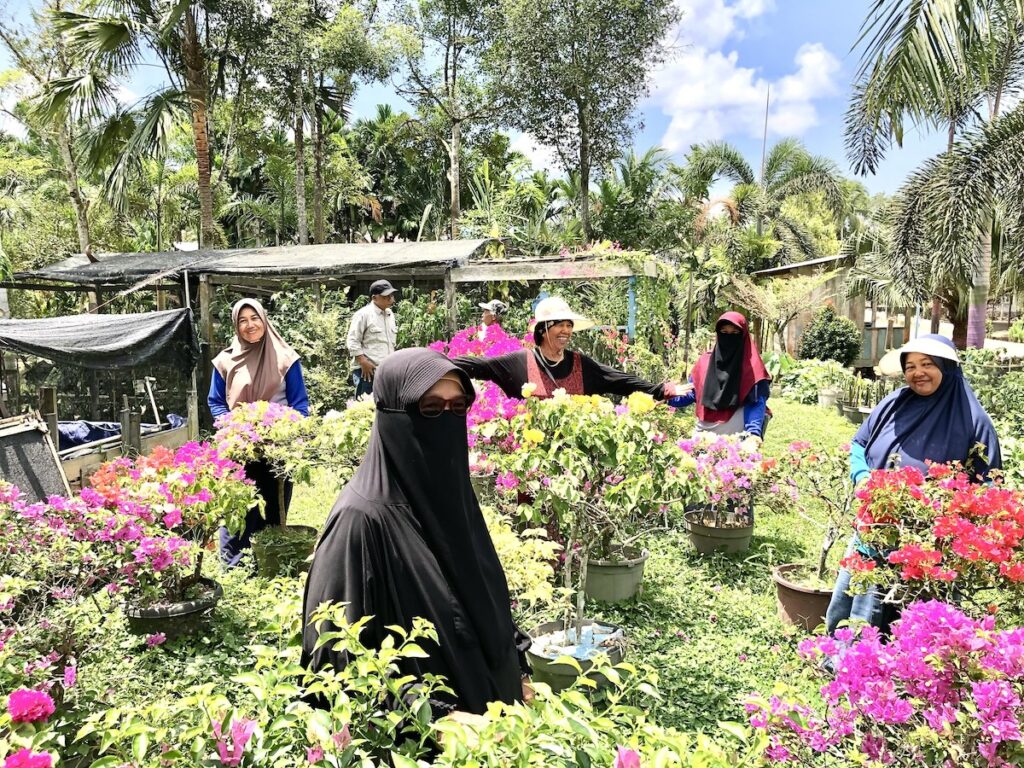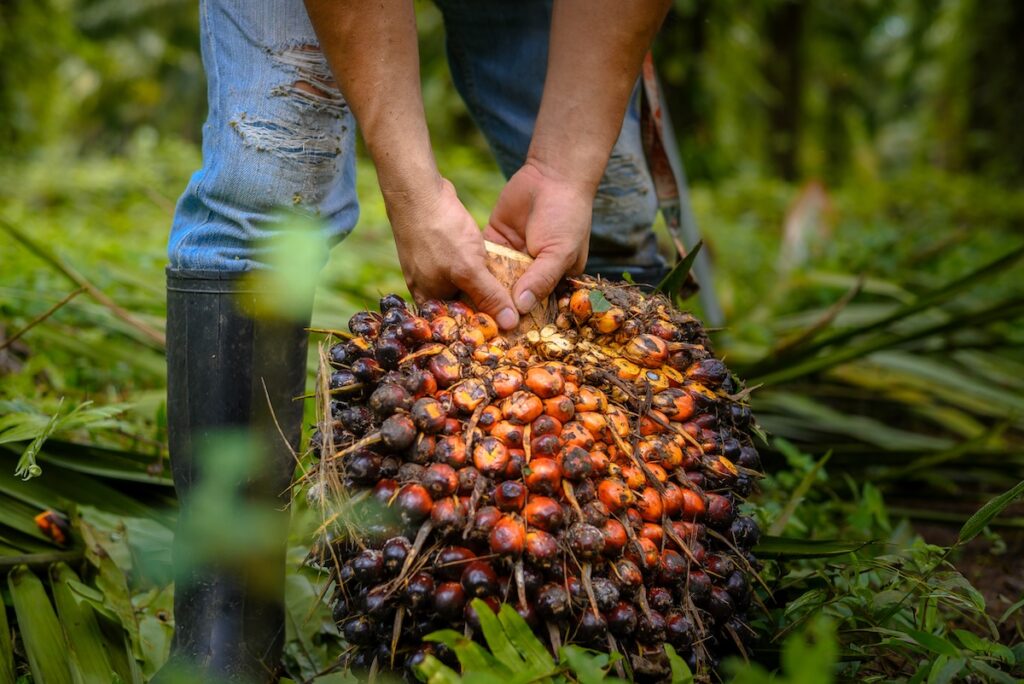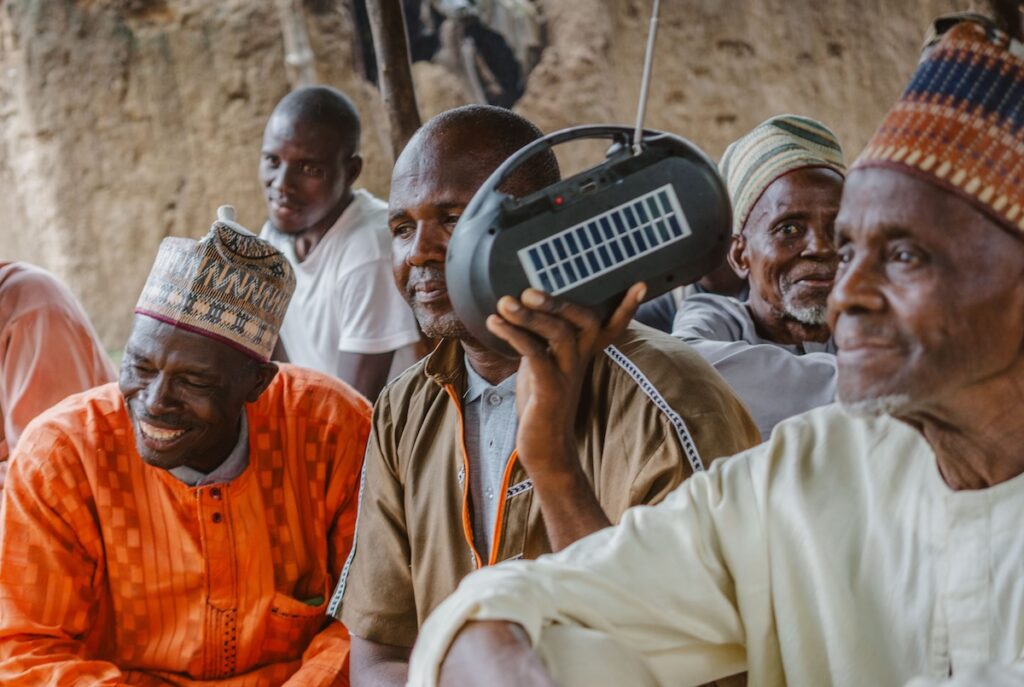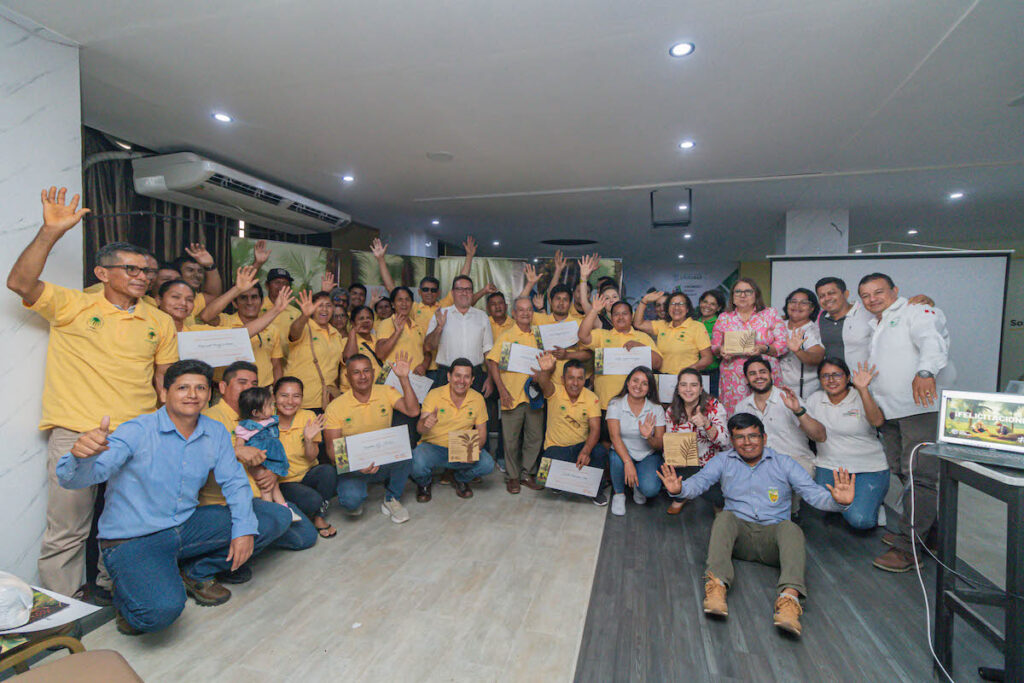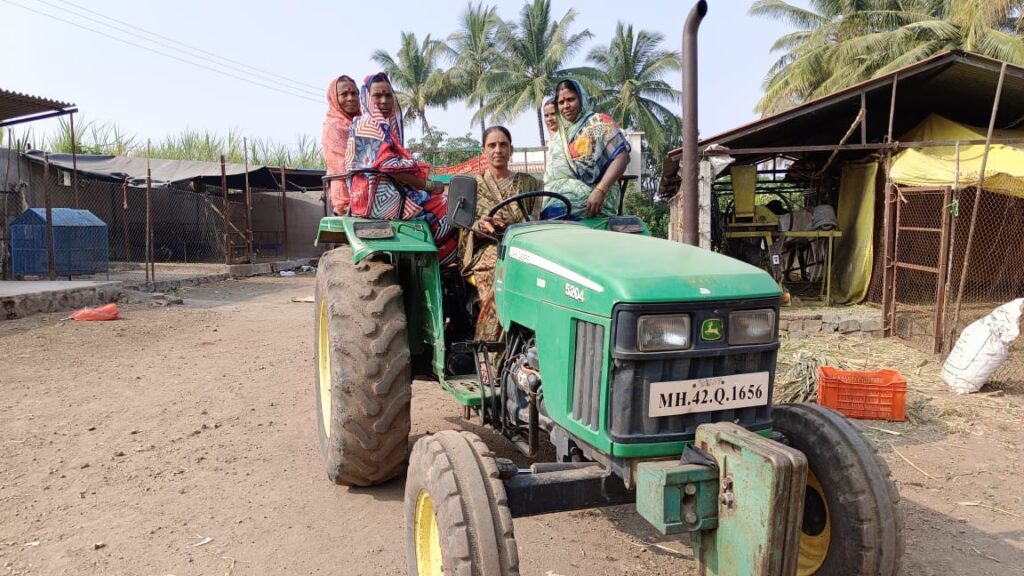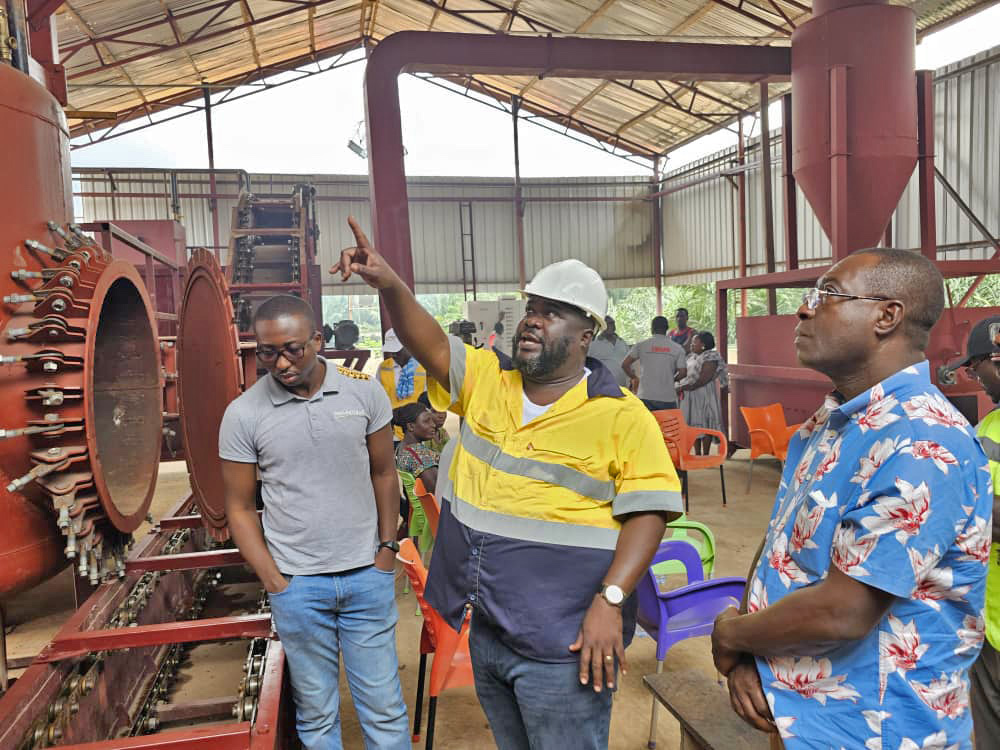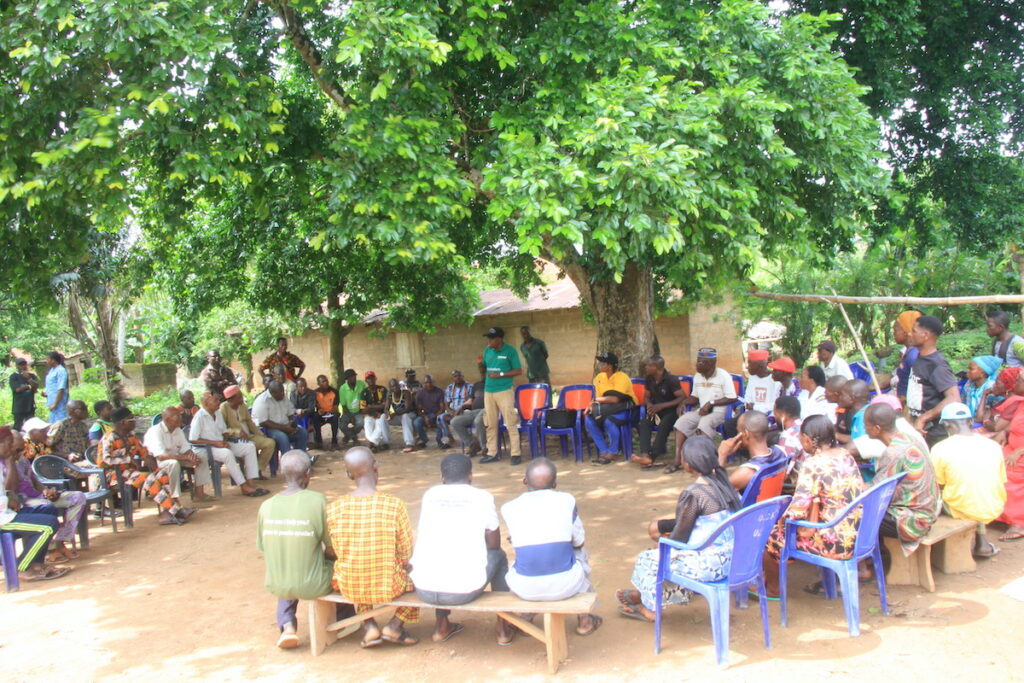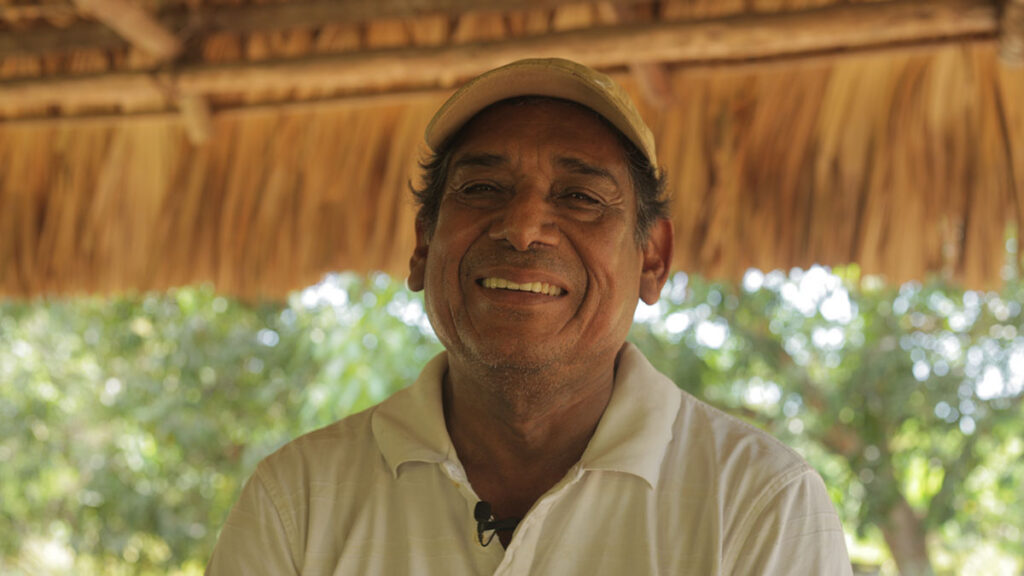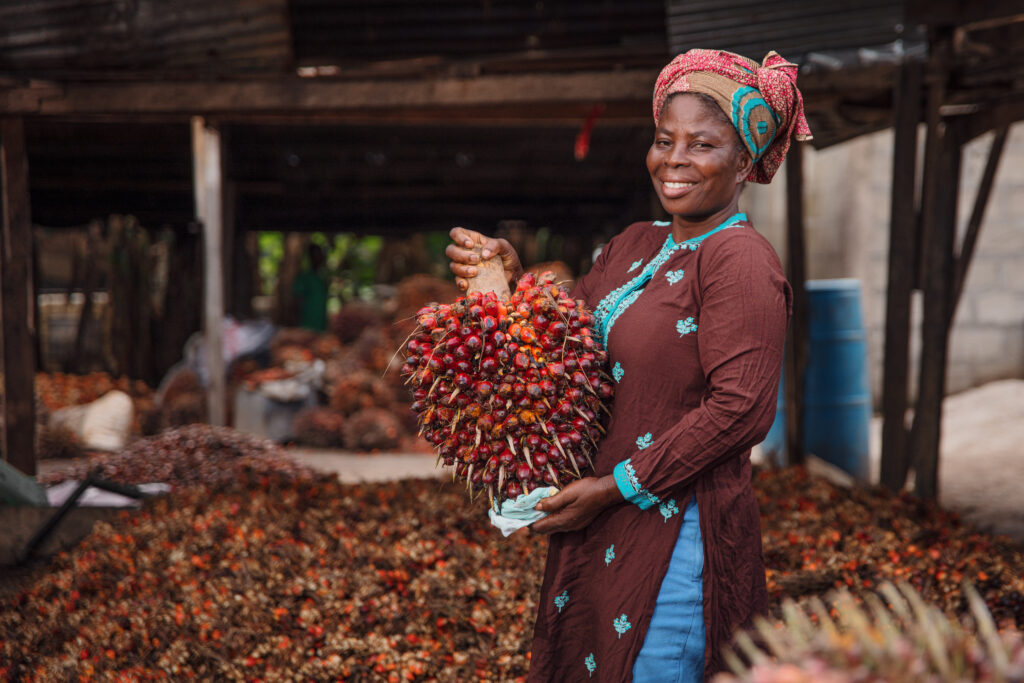Inclusive value chains promote social justice
This is installment number two of three of an interview with Francisco Naranjo, Director of RSPO Latin America, and Flavio Linares, Head of Technical Programmes for Solidaridad Central America, Mexico and The Caribbean. In installment one, Francisco and Flavio discuss human rights in palm oil and how the RSPO contributes to upholding workers’ rights. Here they discuss the necessity for economic growth to be inclusive, particularly to smallholder producers, in order to uphold social justice and promote sustainable development.
What are some actions that can be implemented or have already been implemented to promote the inclusion of smallholders in the palm value chain?
FN: RSPO developed the “RSPO Smallholder Strategy”, with the understanding that smallholders operate within a particular context. It is based on three aspects:
- Improve the living conditions of smallholders;
- Find appropriate mechanisms to be able to certify smallholders, while understanding their nature, their resources and everything related to the context of their situation; and
- Connect them with the market, with large sustainable palm oil users.
To drive the strategy, we designed a specific standard with a different approach to the traditional Principles and Criteria (P&C). The RSPO Independent Smallholder Standard has a step-by-step approach, designed in recognition of smallholders who require support that will allow them to achieve sustainable palm oil production and certification. As smallholders comply with the standard, there are economic incentives that enable them to face the certification process.
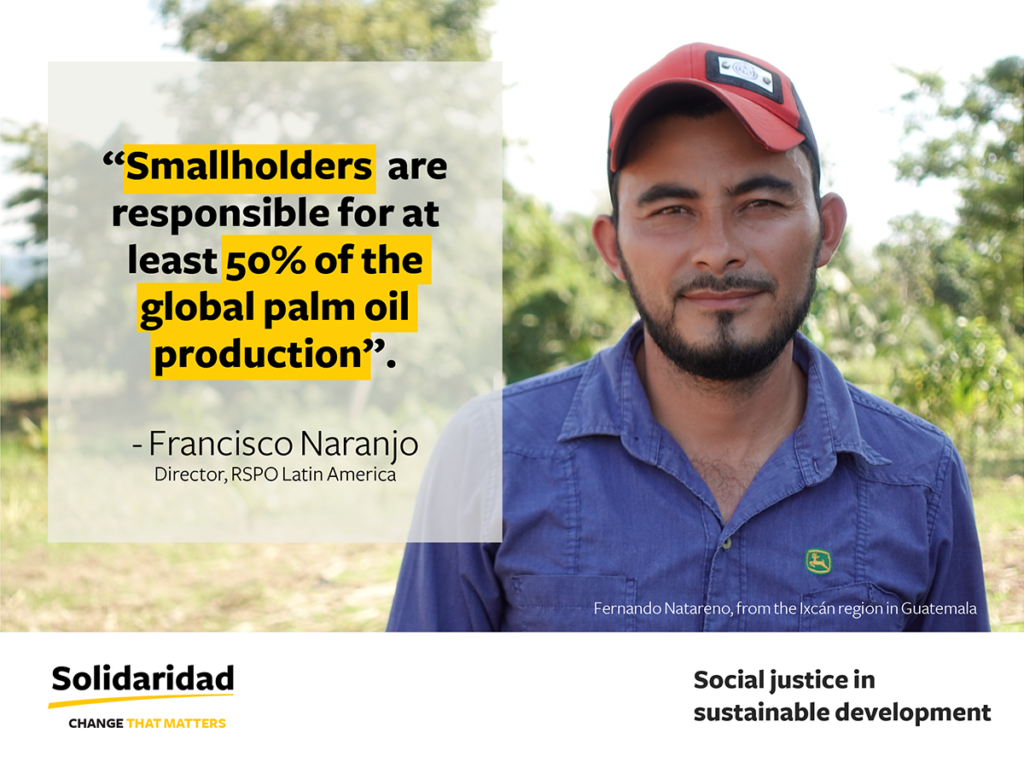
We are also developing simplified tools to help them meet what the RSPO standard calls for on economic, social and environmental issues; for example, how to identify areas of high conservation values (HVC) at the smallholder level. Finally, through the Smallholders Engagement Platform, smallholders can get in touch with sustainable palm oil buyers and other stakeholders willing to support their work.
FL: The RSPO has created this new way of certifying smallholders that makes it more feasible for them. However, there’s another aspect that is still required: it’s necessary to promote the standard, train smallholders, guide them and seek the appropriate financing. In Solidaridad, we also have some tools that support farmers so that they can become entrepreneurs and see that it’s possible to turn oil palm into good income for their family.
One of these tools is the farmer field schools, where we work using the learn-by-doing method with smallholders to promote good social, environmental and productive practices. In addition, we provide them with training manuals and field logs, so that they can record their good practices and have control of their expenses, establish their profits and review how the flow of their investments is going.
Finally, we also promote generational change through the use of digital tools such as the Farm Diary mobile application, where farmers, young and old, will be able to record the entire management cycle of their palm plantation.
How does the national interpretation process of the RSPO P&C contribute to upholding social justice ideals in palm oil?
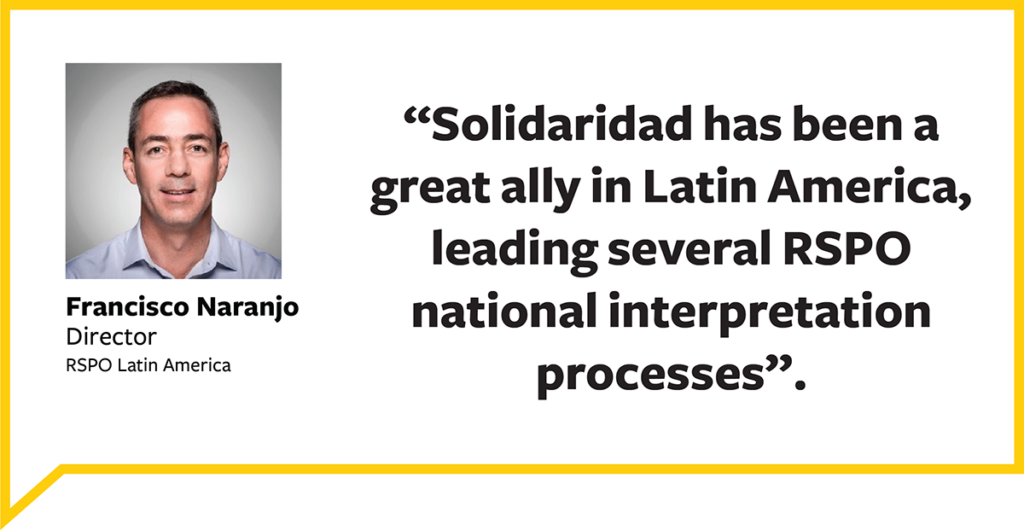
FN: It brings together the different stakeholders within a country, so that they gather to discuss and search for the best and most appropriate alternatives that will make production of palm oil sustainable in that particular country. It is an excellent opportunity to develop guides that allow producers to understand how to face the challenge of sustainable production, but also to provide clarity to auditors, NGOs and different stakeholders on how to understand the application of RSPO’s P&C in a given country.
FL: There can be no social justice without transparency. It is a fundamental value to promote peace and progress for families and communities. There has been no more opportune moment to encourage dialogue than the interpretation process that took place in 2020, in Guatemala and Honduras [it also began in Nicaragua in 2020].
It allowed adapting the RSPO standard to the regulatory framework of each country and to all the laws and agreements the country has signed at an international level with the ILO, the UN and other organizations that protect workers’ rights. We hope that it will allow us to serve a sustainable palm oil sector, with a clearer social license.
And above all, that more smallholders can see this sector as an opportunity to improve their living conditions and tackle poverty, which prevails in rural areas.
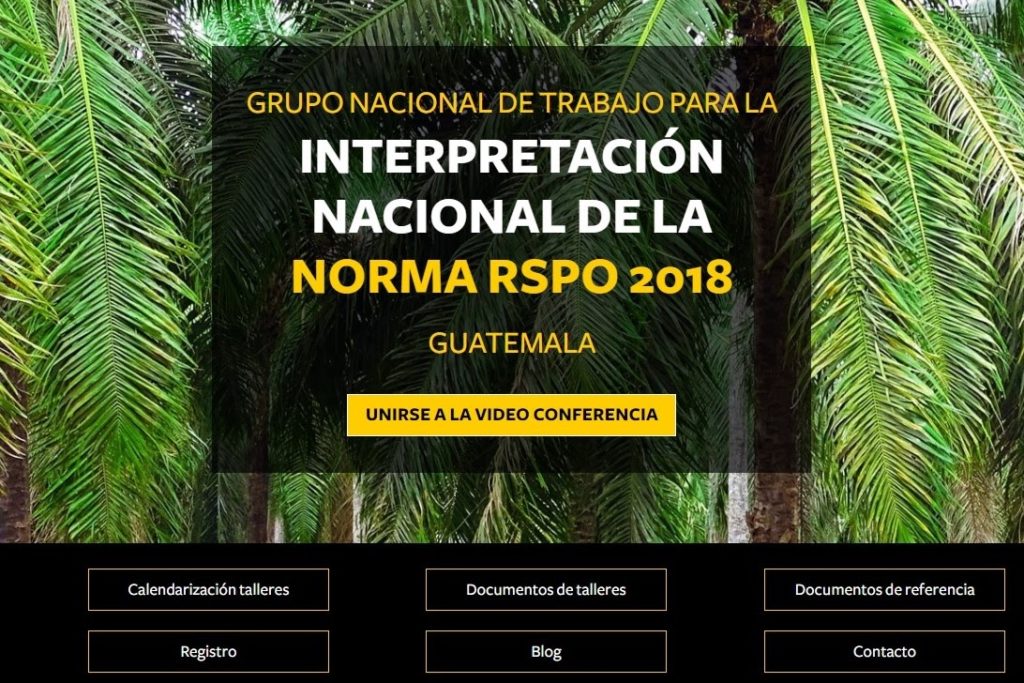
Look for part three of this three-part interview next week. For questions about our work with the RSPO standards in Central America, please contact Flavio Linares, Head of Technical Programmes.

